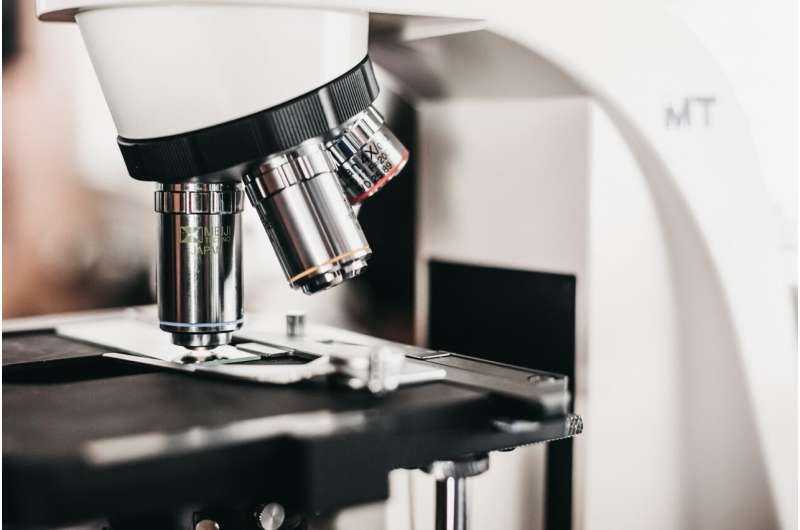This article has been reviewed according to Science X's editorial process and policies. Editors have highlighted the following attributes while ensuring the content's credibility:
fact-checked
peer-reviewed publication
trusted source
proofread
Determining how a sugar molecule can affect cancer cell response to chemoradiotherapy

Researchers at Georgetown University's Lombardi Comprehensive Cancer Center and colleagues who have been exploring the complexities of biochemical pathways involved in cancer development have found that a form of glucose, a type of sugar, is intricately linked to a pathway used to build DNA molecules. When this pathway is overactive, it can lead to cancer and resistance to chemoradiotherapy.
The findings appear June 12, 2023, in Nature Chemical Biology.
"For a good while, my lab has been exploring cell signaling and DNA transcription mechanisms by which cellular metabolism changes in response to environmental and genetic cues, with the goal of designing strategies to treat cancer and other diseases," says Huadong Pei, Ph.D., associate professor in the Department of Oncology at Georgetown Lombardi and a corresponding author of the publication.
"Knowing that cancer cells usually grow quickly and require more glucose than normal cells to reprogram their metabolism has been key to jumpstarting this latest research effort in the hope that we can gain a better understanding of how we can fight cancer at the cellular, or even subcellular level."
Pei's current research effort started when he and his colleagues looked at how nutrients that cells gobble up to stay alive end up triggering modifications to proteins as a result of adding a sugar called O-linked β-N-acetylglucosamine (O-GlcNAc) to the protein. This dynamic and reversible modification is emerging as a key regulator of a number of different cellular processes.
In a series of experiments in both the lab and in mice, the researchers were able to determine that there is an important enzyme involved in nucleotide synthesis, called phosphoribosyl pyrophosphate synthetase 1 (PRPS1), that is modified by O-G1cNAc. Targeting either the sugar or the enzyme could be key to affecting cancer outcomes, the researchers believe.
"Ultimately, we would like to be able to design drugs that target DNA nucleotide synthesis, which includes the modifications we've identified of adding a sugar to a protein and the catalyzing step acted on by the PRPS1 enzyme," said Pei. "In particular, we'd like to develop drugs that can be used to make lung cancer more sensitive, or responsive, to radiotherapy and chemotherapy, as resistance to these therapies is still far too common. But there is still a long way to go, and many more experiments will be needed before we can even consider drug design."
Meanwhile, the researchers next step is to start examining applications of their findings in animal models by using mice grafted with human lung cancer tissue to see if drugs targeting nucleotide synthesis sensitize lung cancer to radiotherapy and chemotherapy.
More information: Direct stimulation of de novo nucleotide synthesis by O-GlcNAcylation, Nature Chemical Biology (2023). DOI: 10.1038/s41589-023-01354-x


















